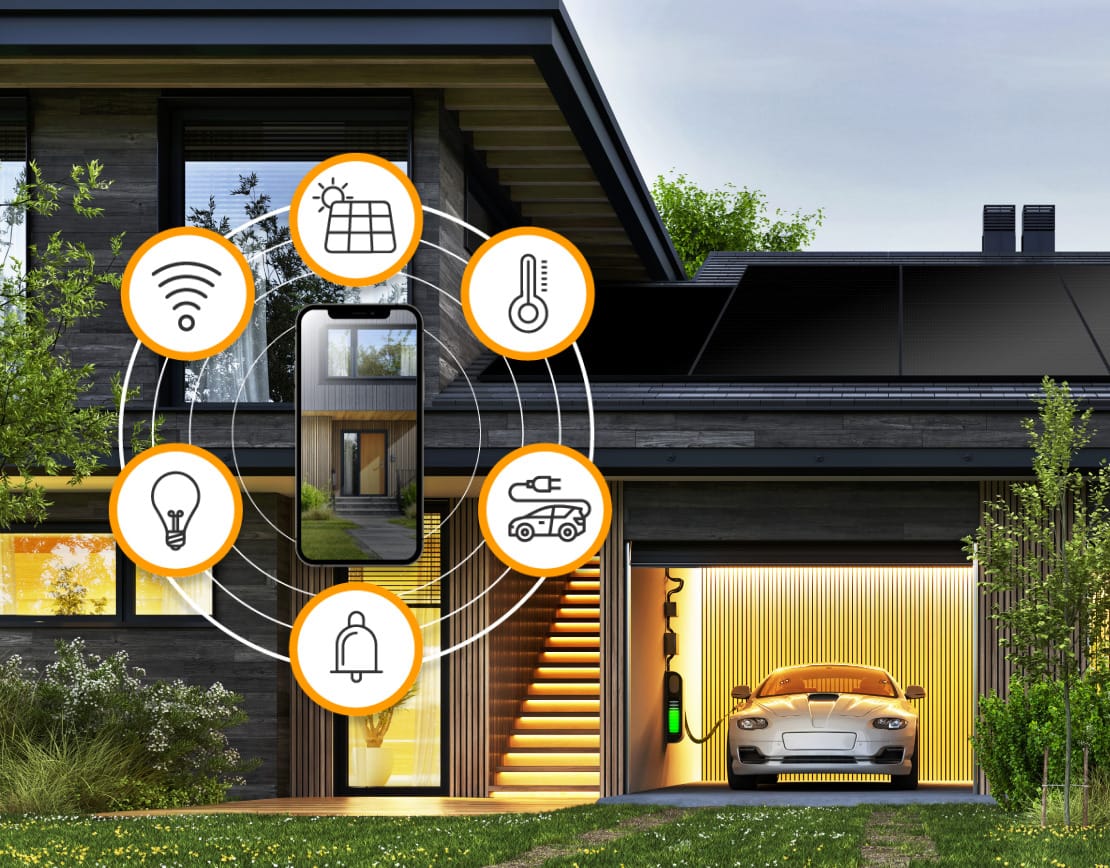Heating a home requires a tremendous amount of electricity. However, there are strategies to make it cost effective, especially with solar.
Common Types of Heating Systems
There are two overarching types of heating systems—central and direct.
Central Heat
- Furnaces—The most commonly used heating system by North American households, furnaces are powered by electricity, natural gas or fuel oil. About 30 percent of the fuel energy is wasted just to keep the exhaust hot enough to safely rise through the chimney. Minimum-efficiency furnaces reduce this waste by using an “inducer” fan to pull the exhaust gases through the heat exchanger and induce a draft in the chimney. “Condensing” furnaces reclaim much of this escaping heat by cooling exhaust gases well below 140 degrees Fahrenheit, where water vapor in the exhaust condenses into water.
- Boilers—These special-purpose water heaters distribute heat in hot water, which gives up heat as it passes through the radiator. Cool water then returns to the boiler to be reheated. Residential boilers typically use natural gas or heating oil for fuel.
- Heat pumps—Two-way air conditioners that use forced warm-air delivery systems to move heated air throughout the house. There are two kinds of heat pumps that accomplish this- air source and ground source. Air-source heat pumps use the outside air as the heat source in winter and heat sink in summer. They’re also cheaper and easier to install. Ground-source, also known as geothermal, GeoExchange or GX, heat pumps get their heat from underground, where temperatures are more constant year-round. Ground-source heat pumps are more efficient than air-source heat pumps.
Direct Heat
- Gas-fired space heaters—This includes wall-mounted, freestanding and floor furnaces that provide small heat output for a single room.
- Electric space heaters—Portable, electric heaters are cheap to buy but costly to use. They convert an electric current directly into heat, like a toaster or iron. Better for intermittent use. Electric baseboard heat is similar, except that it is hard-wired. Although installation costs are low and it’s easy to maintain the temperature in one room, operating costs are generally very high, unless the home is super-insulated.
- Wood burning and pellet stoves—Savings can be substantial for wood burning stoves, especially if you cut your own wood. New models of wood stoves are quite clean burning. Pellet stoves offer several advantages over wood stoves: they’re less polluting and offer greater convenience, temperature control and indoor air quality.
- Fireplaces—Gas and wood fireplaces are typically décor for a room, and not an effective heat source. Fireplaces generally lose more heat than they provide, because so much warm air is drawn into the unit and must be replaced by cold outside air.
High-End Heating
- Radiant floor heating—These systems circulate warm water in tubes under the floor. It is highly controllable, yet expensive to install. Also limits carpet choices and floor finishes.
- Ductless, mini-split, multi-split—Residential ductwork is rare outside North America. Field trials suggest that ductless heat pumps have good cold weather performance and can be very cost-effective.
- Combined heat and power (CHP) or cogeneration—This method is being seriously studied in some countries, but are not yet widely available. The idea is to use a small generator to meet electric demands of the home, and recover waste heat to heat the house and hot water.
Heating Your Home With a Solar System
Some of the above listed methods can be used in conjunction with a solar system. Namely, radiant heating, hot water baseboards or radiators or a central forced-air system can distribute solar heat. Most solar air heating systems are room air heaters, but transpired air collectors have limited their application in the home.
Utilizing traditional solar panels can drastically reduce your electric bill. In fact, if you have an electric heater traditional solar can lower your electric bill up to 90%.
Sources:
https://smarterhouse.org/heating-systems/types-heating-systems
https://www.energy.gov/energysaver/home-heating-systems/active-solar-heating



